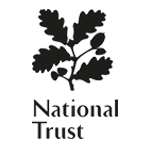
Made possible by you
Your continued support and loyalty not only allows garden wildlife to flourish in your own green space, but enables us to better support important conservation initiatives that protect our natural world, with a contribution from every sale of our licensed range made to the National Trust. Photo Credit: ©National Trust Images/Andrew Butler
Shop National Trust Garden Wildlife RangeThe incredible conservation efforts of the National Trust spans coast to coast.

West Cornwall
Located in Penberth Valley is a beautiful, secluded, well-visited small fishing community in West Cornwall, with the infamous South West Coastal Path and several footpaths running through it. Its deep sided valley was once used for growing daffodils, but as smaller farmers left, it became heavily wooded. Unfortunately, the Valley has been hit by Dutch Elm Disease which is effecting parts of this woodland. The National Trust aims to plant up several small, steep, unused agricultural fields with a variety of blossoming trees to create a joyful, reflective space for those visiting and for people living within it, for generations to come. By planting a variety of different blossoming trees, they hope to enhance biodiversity within the Valley, by establishing more substantial hedgerows and planting an array of blossoming trees that fruit in the Autumn. Photo Credit: ©National Trust Images/John Miller.
Explore More
Arlington, North Devon
This beautiful regency house dates back to 1823 and is set in picturesque gardens and grounds. The National Trust wants to create two hectares of blossom wood pasture, which sits in an area between two plots of semi-ancient oak woodland. The site is criss-crossed by public footpaths and used regularly by members of the public. The world is in a biodiversity and climate emergency and many people have unequal access to nature and green space. Arlington’s Estate is well placed to help with these challenges, and is part of an ambitious and exciting national programme to deliver more benefits for nature, people, climate and history across the 2,700 acre estate. Photo Credit: ©National Trust Images/Chris Lacey
Explore More
Manchester, Angel Square
A slight change from the countryside scenery, this urban project will play a crucial part in bringing nature to places you least expect to see it. This project aims to engage communities in Manchester city centre through blossom tree planting, workshops, and trail activities. Greater Manchester is one of National Trust’s Urban Places priorities for improving people’s access to nature, of which this project will be key.
View Map
Sissinghurst Castle Garden, Kent
The National Trust's newly certified organic vegetable garden at Sissinghurst is already in a great place to inspire and educate visitors on methods of food production which are sustainable, organic and sympathetic to wildlife. They would like to enhance the vegetable garden by transforming a currently underused space into an area focused on wildlife beneficial to vegetable growing, and also highlight some of our native edible or forage species. The project would include a number of wildlife habitats, an insect wall, a reptile hibernacula, potential for a small boggy or pond like area that gives back to wildlife. Photo Credit: ©National Trust Images/Jo Hatcher
Explore More
Horsey Windpump & Heigham Holmes
The National Trust's aim for this project is to enhance two sites in the Norfolk Coast, Horsey Windpump and Heigham Holmes. The garden located there is planted specifically to attract the spectacular swallowtail butterfly, providing an amazing opportunity for visitors to see it up close. Horsey and Heigham are the only National Trust properties where this insect is found, so they're both very special sites for wildlife. They also want to improve biodiversity and engagement opportunities with the help of their volunteer teams, to show what amazing wildlife the Norfolk Broads has to offer, and to showcase how gardens can be great places for wildlife too. Photo Credit: ©National Trust Images/Rob Coleman.
Explore more
Holnicote Estate, North Devon
The farm located at Holnicote Estate, called Selworthy farm, is home to a number of old orchards. The aim for this project is to locate and restore the old orchards that reside on the estate. They have already planted 30 apple trees and are extending this with another 30. Clearly visible from the roadside and public rights of way, this orchard will not only look beautiful but is a reversion of the original fields to it's historic land use. The grassland, hedges and waterways on the farm are already being managed for nature, so by doubling the number of fruit trees, it will bring even more benefits. The nectar and fruit produced is crucial for providing food for mammals, birds, and invertebrates and, due to how fast apple trees age, they will soon be providing nesting habitats for birds such as woodpeckers and owls as well as insects such as bees. Photo Credit: ©National Trust Images/John Millar.
Explore more
Glastonbury Tor
The National Trust aims to both breathe new life into orchards and hedgerows around the area and create new spaces rich in beauty and buzzing with diverse wildlife to both welcome visitors and engage the local community.

